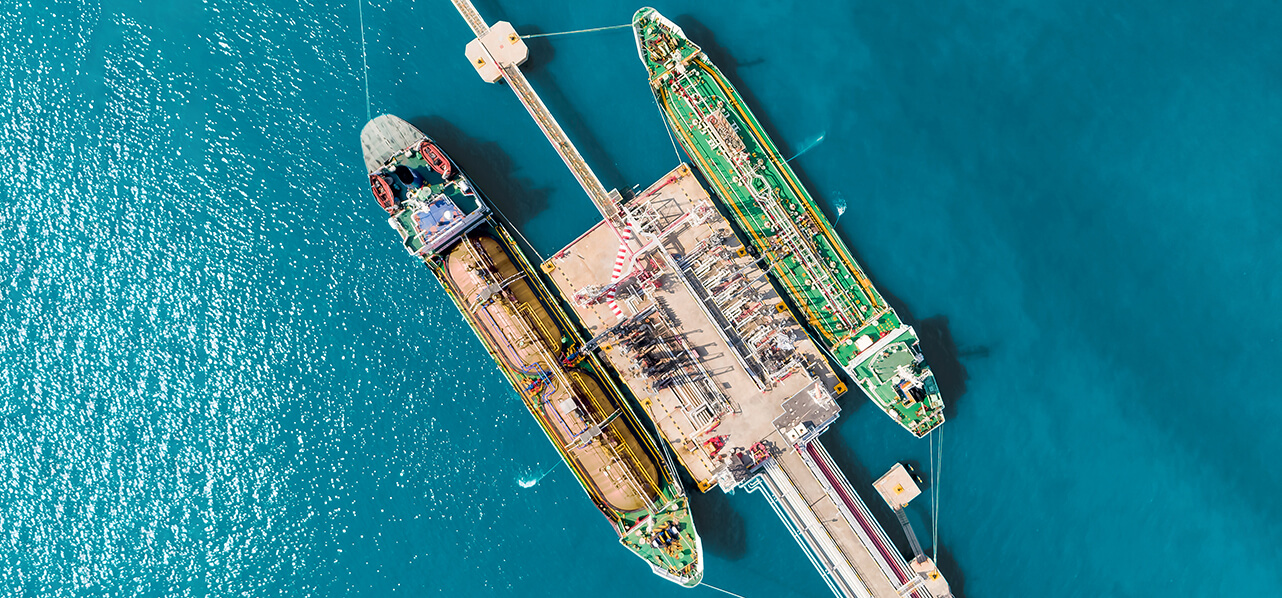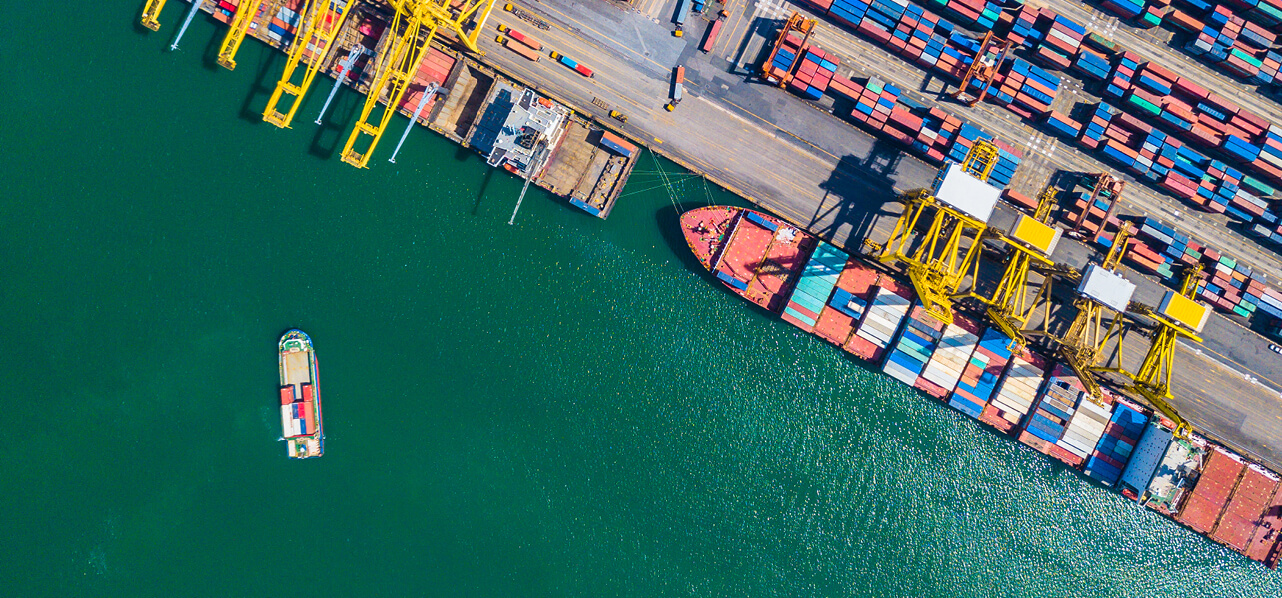"Given the significance of any loss of hire to the owners, the validity of underperformance deductions made by charterers based on their routing report is often in dispute."
Underperformance disputes
Breaches of speed and consumption warranties in time charterparties allow the charterers, subject to any express terms of the charterparty to the contrary, to deduct the value of the loss of time and of any bunker overconsumption from hire payments.
Tanker time charterparties contain express warranties that set out exactly how the underperformance deduction is to be made. However, under bulk carrier time charterparties, which are almost always concluded on the NYPE form, the position is much less certain. The performance warranty will appear in the vessel description clause, sometimes accompanied by rider clauses which add qualifiers.
Given the significance of any loss of hire to the owners, the validity of underperformance deductions made by charterers based on their routing report is often in dispute. Indeed, in the present context of emissions restrictions and high compliant fuel prices (which will increase the value of any overconsumption claims), the substance of these performance warranties is likely to become increasingly tested.
Adverse currents
A vessel performance clause commonly provides for “no adverse currents”, “no negative effect of currents” or a variant of these phrases, as part of the ‘good weather’ definition, but rarely refers to the effect of positive currents.
It is uncontroversial that an owner can rely on negative currents affecting the vessel’s speed when defending a claim of underperformance. However, will an underperformance claim automatically fail if the whole voyage was conducted in adverse currents? The alternative approach would be to increase the actual speed by the amount of the adverse current to reveal what the vessel could have achieved on what, but for the current, would have been ‘good weather’ days – essentially an arithmetical deletion of the effect (in knots) of the adverse current.
In London Arbitration 04/12 the tribunal was reported to have rejected the primary approach of treating a period of adverse current as heavy weather, favouring the alternative approach described above. However, a plethora of recently reported awards have displayed a tendency of LMAA tribunals to revert to the primary approach[1].
But even if recent arbitration awards could be said to reveal a current consensus amongst arbitrators, that would perhaps be an overstatement – arbitration awards are not binding precedent and the position therefore remains open to argument in each particular case.
"Can a time charterer rely on assisting/positive currents on good weather days to assist in its claim for breach of a speed warranty, if not expressly allowed in the performance clause?"
Assisting/positive currents
Can a time charterer rely on assisting/positive currents on good weather days to assist in its claim for breach of a speed warranty, if not expressly allowed in the performance clause? The question is important because, following the decisions in The Didymi[2] and The Gas Enterprise[3], routing companies tend to decrease a vessel’s performance speed by the amount of an alleged positive current on good weather days, thereby increasing the time loss (and perhaps also the overconsumption) figure when extrapolated over the whole voyage (though, again, the permissibility of ‘good weather extrapolation’ depends on the wording of the charterparty performance clause).
There has been some disagreement on this approach in reported LMAA arbitration awards:
- a) The argument in favour of accounting for assisting currents in relation to claims for breach of a speed warranty is that, on a strict legal construction of a standard worded vessel performance or description clause, the vessel’s capability should be measured irrespective of prevailing currents (i.e. the vessel’s ‘true’ performance in her own right, not being hindered or assisted by current). If a vessel can only achieve its warranty with the benefit of a positive current whilst sailing at the required RPM, this should indicate that the vessel would not achieve it otherwise[4].
b) The contrary argument is that the effect of positive currents should not be included in time loss and consumption calculations in circumstances where they have not been mentioned by the parties in the performance clause (if they had wanted their effect to be included then they would have said so) and where there is a question as to the accuracy of measuring the precise effect of currents[5].

Given environmental concerns, it might be considered imprudent for a tribunal to penalise an owner for taking advantage of positive current to reduce RPM and bunker consumption.
As to the argument in b) above, there may be two further reasons in favour of that approach:
(1) The terms of a time charter, in particular the amount of hire paid thereunder, are negotiated on the basis of the potential employment opportunity for the vessel which, in turn, will be assessed on the number of voyages a vessel should be able to perform within the term of the charter. Thus, the profitability of the vessel charter will very much depend on the warranted speed and consumption of the vessel. If the vessel achieves the warranted speed, with or without current assistance, then it should be satisfying the original commercial concerns of the charterer. Against this, a time charterer may say that it is suffering a loss if the vessel is not achieving what it would have achieved in its own right, in that the voyage is performed more slowly and yet the charterer is paying hire each day. This latter argument is, however, commercially illusory if the time charterer has sub-time chartered the vessel and is earning a higher daily amount of hire than under the head time charterparty.
(2) Given environmental concerns which have, amongst other factors, encouraged slower steaming, it might be considered imprudent for a tribunal to penalise an owner for taking advantage of positive current to reduce RPM and bunker consumption. Further, such speed reductions benefit the time charterer in terms of reduced bunker consumption.
Therefore, the tendency has been for positive currents to be ignored in reported LMAA arbitration awards. However, this approach remains open to doubt and subject to the wording of the particular charterparty clause(s).
"Because of this ambiguity, many vessel performance or description clauses now expressly provide for a combined wave height of sea state and swell. "
Swell
Swell waves are different to wind waves. Wind waves are generated by immediate wind action on the sea, whilst swell is a more rounded self-sustaining wave that has moved far from where it was originally wind generated. In open ocean waters, an observed wave is most likely to be a combination of both.
There has been no consensus in reported LMAA arbitration awards as to whether a performance clause which renders good weather conditions subject to wave height limited to “Douglas Sea State 3” includes swell and, moreover, what the applicable wave height is. Routing companies often seek to apply an alternative criterion of “significant wave height”, confusing the analysis even further.
Because of this ambiguity, many vessel performance or description clauses now expressly provide for a combined wave height of sea state and swell.
However, vessel performance clauses often refer to “no swell” or “without negative influence of swell” as part of the ‘good weather’ definition, in turn giving rise to a separate problem – what does this criterion mean and how is it to be given proper effect?
This performance parameter has been interpreted in different ways in the reported LMAA arbitration awards, as allowing for:
(1) minor swell which would not hinder a vessel of its size[6];
(2) no swell in excess of the swell element permitted by the Douglas Sea State 3 criterion, assuming that it is held to include swell waves in addition to wind waves[7]; or
(3) no swell at all during a particular period, any such swell thereby rendering the day a heavy weather day[8].
"The treatment of currents and swell are largely (if not entirely) questions of fact for an individual tribunal, not questions of law capable of a binding precedent in a future High Court decision."
Comments
In view of the uncertainty as to how a particular LMAA tribunal might, in a vessel underperformance dispute, approach the effect of currents (whether adverse or positive) and swell (namely whether this is included in the “Douglas Sea State” criterion and how phrases such as “no swell” or “without negative influence of swell” should be given effect), the parties to a time charterparty should exercise caution when negotiating the wording of the vessel description or performance clause to ensure that the criteria for good weather conditions upon which performance will be measured are comprehensive, clear and unambiguous.
It needs to be borne in mind that the treatment of currents and swell are largely (if not entirely) questions of fact for an individual tribunal to decide, not questions of law capable of a binding precedent in a future High Court decision, so clear contract drafting is the surest means of avoiding a legal dispute and the associated uncertainty.
The Maritime Dispute Resolution team at Watson Farley & Williams regularly encounters the issues outlined above when advising on underperformance claims. If you have any queries, please do not hesitate to contact us.
[1] See London Arbitration 21/18 (upholding London Arbitration 15/07, the first reported LMLN summary to favour the primary approach), London Arbitration 22/18, London Arbitration 6/19, London Arbitration 24/19, London Arbitration 26/19 and London Arbitration 27/19
[2] Didymi Corporation v Atlantic Lines Navigation Inc (The Didymi) [1988] 2 Lloyd’s Rep 108
[3] Exmar NV v BP Shipping Ltd (The Gas Enterprise) [1993] 2 Lloyd’s Rep 352
[4] In London Arbitration 15/05 and London Arbitration 4/12, the tribunals favoured this approach.
[5] This was the approach favoured by the tribunals in London Arbitration 21/04, London Arbitration 15/05 and London Arbitration 12/14, and, more recently, by the tribunals in London Arbitration 21/18, London Arbitration 22/18, London Arbitration 6/19, London Arbitration 26/19 and London Arbitration 27/19 (we are also aware of an unreported 2019 award to the same effect).
[6] See London Arbitration 26/19
[7] See London Arbitration 21/18
[8] See London Arbitration 24/19
Related insights
Article



